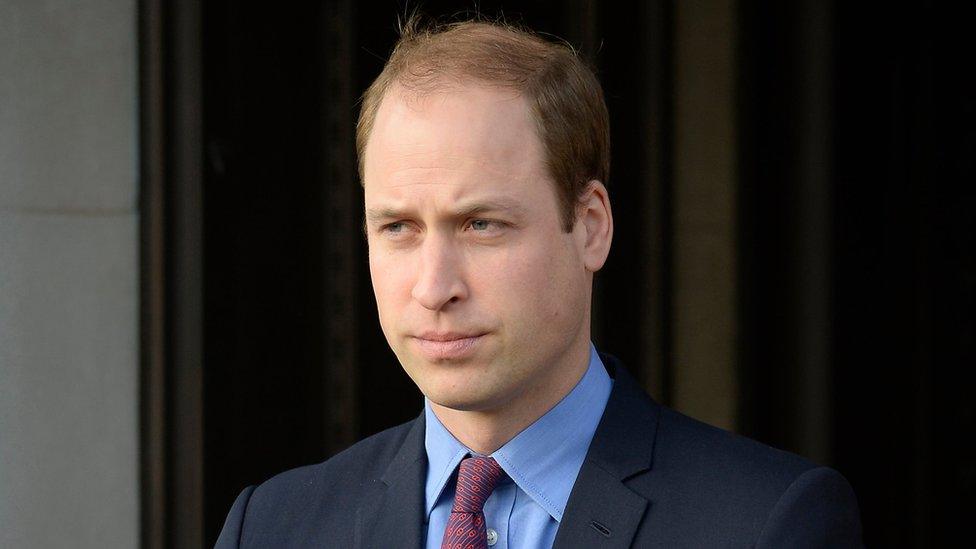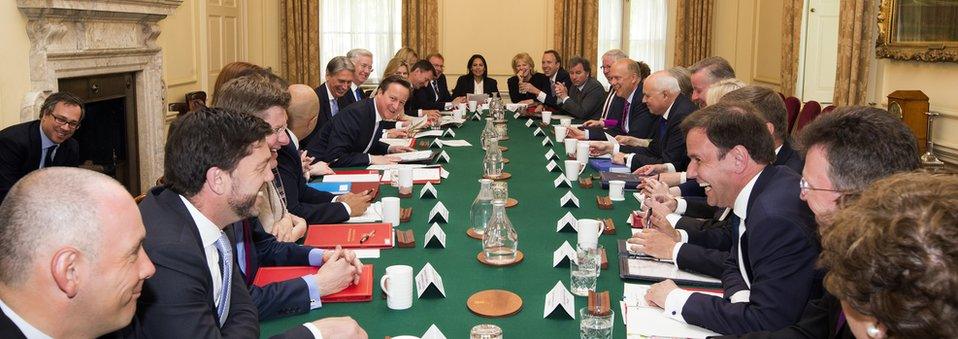Prince William receives confidential cabinet papers
- Published

The Duke of Cambridge occasionally receives copies of confidential cabinet documents, the BBC has learned.
A Cabinet Office spokesman said that, as a future heir to the throne, it was "appropriate that he is regularly briefed on government business".
It was revealed on Tuesday that Prince Charles receives such material routinely - as does the Queen.
Campaign group Republic said there was "no good reason" why Prince William also received the information.
Earlier this week, Republic received four chapters of the Cabinet Office's "precedent book" - released after a three-year freedom of information battle.
The book shows Prince Charles, the Queen, ministers and a handful of others get papers from cabinet and ministerial committees.
Junior government ministers do not receive such access to the documents.
'Best-informed lobbyist'
Of Prince William's access, the group's chief executive Graham Smith said: "There is no mention of this access in the documents released this week. It appears to be a free for all.
"We support Labour's call for an inquiry, so we can know how much information is being handed to which royals."
Following the initial discovery about Prince Charles' access to the documents, Republic wrote to Prime Minister David Cameron calling on him to end the practice of sharing the documents with the Prince of Wales.
Labour MP Paul Flynn called for a parliamentary inquiry and said the access made the prince the country's "best-informed lobbyist".
Shadow energy and climate change minister Clive Lewis has also called for a parliamentary review.

Analysis

BBC royal correspondent Peter Hunt
We've always known the Queen, as a constitutional monarch, has access to government papers. She has a right to be consulted; to encourage; and to warn her government ministers.
Now we've learned, in the past two days, that her son and grandson enjoy such privileges - privileges that are not normally extended to elected junior ministers.
In the past, Prince William didn't rush to embrace his destiny. Marriage, fatherhood and entering his 30s, have heralded a shift in his approach.
Access to these documents allows him to understand Whitehall and to prepare for when he is king.
His supporters will argue this makes perfect sense as it's better to have an informed future monarch than an ignorant one.
His critics will question the lack of transparency and the need for him to see such sensitive material in the first place.

However, Bernard Jenkin, who chairs the cross-party public administration and constitutional affairs committee that scrutinises the Cabinet Office, said it was "outrageous" to describe Prince Charles as a lobbyist.
"This is really a debate about the Prince of Wales' conduct, not what papers he sees," he said.
He added that the "vast majority" of people would agree the heir to the throne should have access to such documents.
Earlier this year, following another Freedom of Information Act battle, the so-called "black spider letters" sent by Prince Charles to ministers were released.
Sent over a number of years, the letters covered a range of issues including conservation, defence spending, badger culls, the NHS and homeopathy.